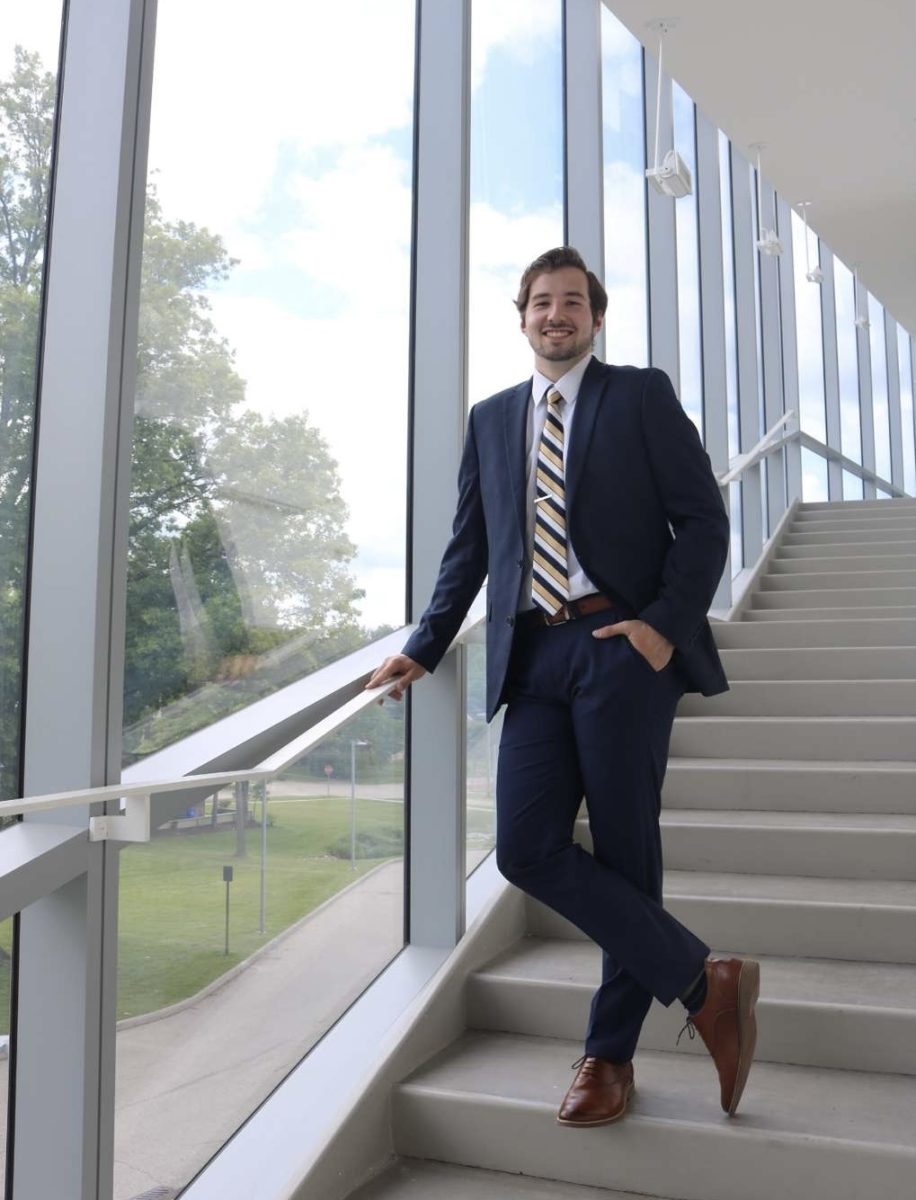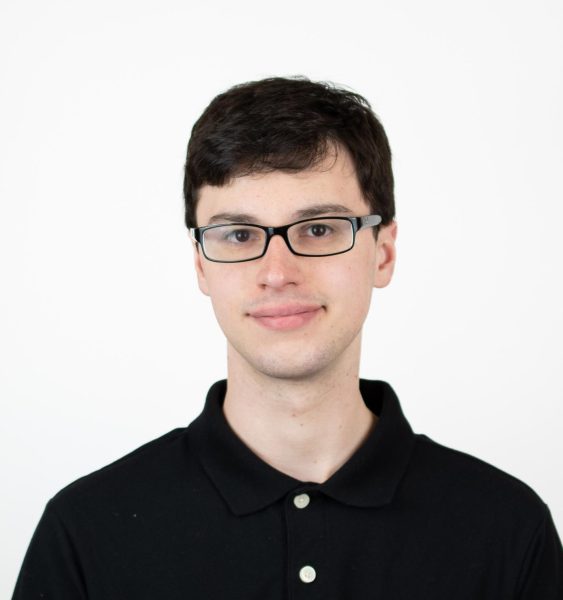Kevin Bovair is a Kent State student enrolled in the two-year accelerated nursing program. Bovair previously earned a bachelor’s degree in athletic training before deciding to seek a Bachelor of Science in Nursing for the purposes of going deeper into medicine and healthcare to impact people’s lives for the better.
For over a month, Bovair’s clinical placement has been at University Hospitals Seidman Cancer Center in Cleveland, where he works with the oncology unit. Clinicals are where nurses receive first hand experience working in medical centers with patients. Depending on the placement, student nurses can work up to 12-hour days. During their shift, student nurses are expected to help patients by administering medications, checking vital signs and completing proper comfort measures.
This interview was edited for length and clarity.
Q: What’s it like working in a hospital setting? Do you tend to feel overwhelmed or are comfortable with it?
A: It’s definitely a heavier hitting topic of medicine that definitely takes a specific group of people to work with. I would say it’s manageable for the stress of working with it all. However, obviously, there are certain events where it’s higher stress, so like sitting through a meeting with a patient discussing end of life care.
Q: How has that first-hand hospital experience helped you in your career journey? Do you feel that it’s prepared you for what you’re going to be doing in the future?
A: I feel like as a person that’s more hands-on oriented, I think that actually allowing students to go out into the field and get that first-hand experience of working with patients and patient interaction and getting to utilize the skills that are not only taught to us in lab but also picked up and learned along the way, it’s definitely huge to our own understanding of what we want to do, and it also helps influence us on what we wish to do in the future.
Q: What’s one of the most important things you’ve learned during your clinicals?
A: Seeing the patient as a whole, not just the condition that they have. How can we look at the patient in more ways than one rather than having them just be defined by what their condition is? That also just allows us to better understand the patient and develop that better connection with them and overall just improve the healthcare we give them.
Q: Do you have a fond memory or a good memory of anything you’ve done during clinicals?
A: It’s always nice when I know I can do something where [patients] can get a smile on their face or something that can just over improve them, whether that’s physically or mentally. It’s very gratifying knowing that I have the ability to make an impact on somebody’s life like that.
Q: What advice do you have for future nursing students who might be nervous about starting clinicals?
A: Don’t be afraid to ask questions, and even if you don’t know something it is okay to say that you don’t know something and more often than not, people are going to be happy to explain something to you and further teach you. Even the patients are, for the majority, very accepting of us nursing students.
Q: How have you viewed your time spent so far for your clinicals?
A: Definitely grateful for it, getting the opportunity to work with patients. Every time I go in to do those 12 hours it’s definitely rewarding. I’ve certainly enjoyed my time.
John Engoglia is a reporter. Contact him at [email protected].



